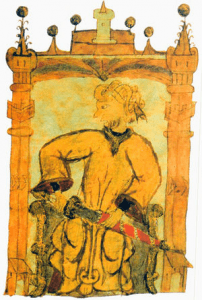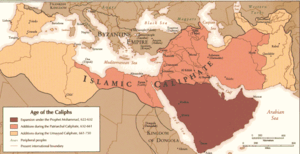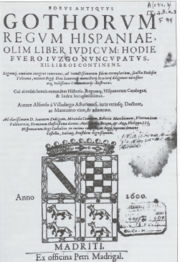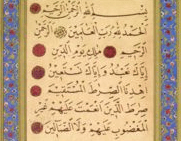An Umayyad governor sent from Damascus rules most of Iberia, and Jewish community leaders help maintain order in key cities after the flight of the Visigothic elite. Treaty agreements safeguard the Hispani-Roman population’s property, religion, and customs.
Tariq ibn Ziyad Crosses To Spain
The Berber commander, Tariq ibn Ziyad, head of a small Umayyad force, crosses to Spain from North Africa with the support of Count Julian of Ceuta. At the Battle of Guadelete, ibn Ziyad’s troops defeat the large army of the Visigothic king, Roderic, bringing an end to Visigothic rule and…
Muawiya Becomes the Caliph
Muawiya, a Meccan elite and companion of Muhammad, becomes the caliph and founds the Umayyad dynasty in Damascus. During the next century, his descendants and relatives expand Muslim rule northwards into Anatolia and Central Asia, eastwards to the borders of India and westward across North Africa.
Recceswinth Issues the Forum Judicum
The Visigothic king, Recceswinth, issues the Forum Judicum, a comprehensive law code dealing with marriage, business transactions, crimes, and heresy. The code stipulates harsh punishments and severely restricts the activities of Iberian Jews.
Muhammad Dies In Medina
Muhammad dies in Medina, and a series of caliphs (successors) are chosen as leaders of the fledgling polity. Over the next decade, Muslim armies extend their rule in northern Arabia and then decisively defeat Byzantine troops in Palestine and Sasanid forces in Iraq, taking control of those territories.
Muhammad Begins Preaching
Muhammad begins preaching the faith of Islam in Arabia, attracting followers called Muslims. He proclaims the Oneness of God, conveys the message of the Qur’an, and stresses the faith’s connections to Judaism and Christianity.








